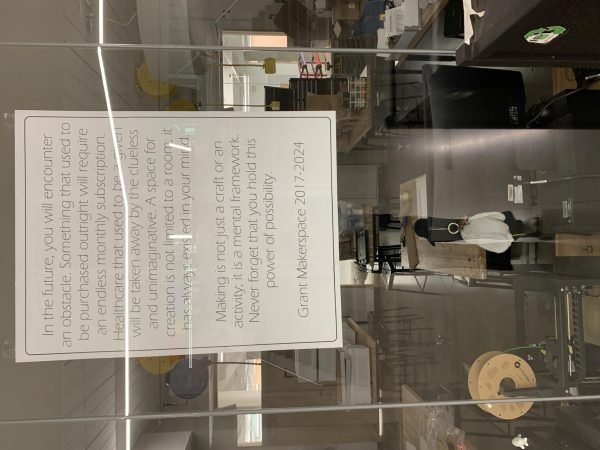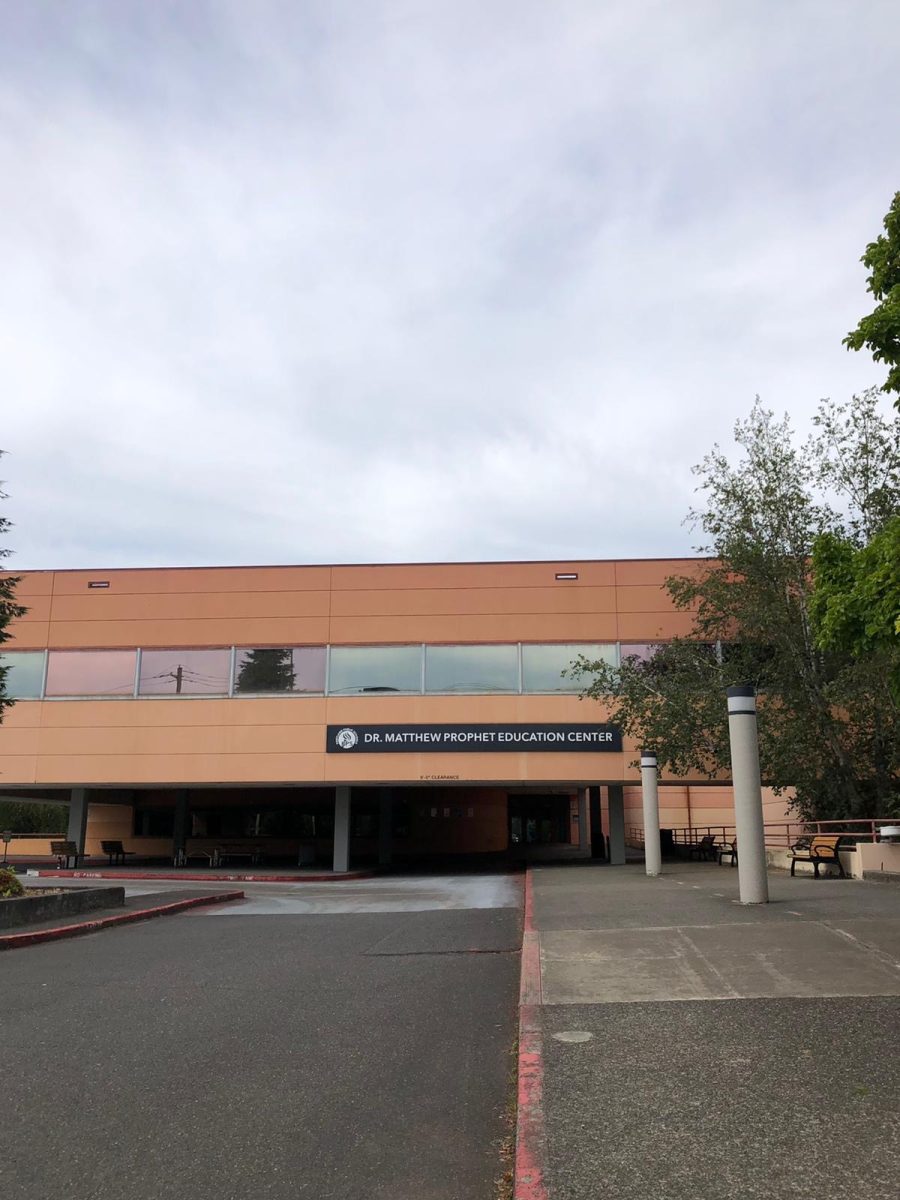Budget-related issues are not new for public schools in Oregon. For years, public schools have been funded by a combination of state and local property taxes, but Measure 5, passed in 1990, put a cap on the property tax money that could be used for school funding.
Consequently, the state now covers a much larger portion of the public school budget than it did prior to the passing of Measure 5. This has led to education competing with healthcare and infrastructure for state funds.
On top of historical issues, PPS Interim Superintendent Sandy Husk, in an interview with OPB, credits current issues with state funding to, “three things. It’s the increase in costs… It’s also declining enrollment across the state. We also had the ending of the federal funds that we refer to as the ESSER funds.”
As PPS struggles with inflation, a decreasing student population and drained COVID relief funds, they are also facing the outcomes of the November 2023 teacher’s strike. Because the district agreed to raise teacher salaries, money must be moved around and other positions must be cut.
Despite PPS’ budget limits regarding these cuts, many are left frustrated and disappointed with how the district has handled these decisions. At Grant, students and staff alike have expressed discontent regarding the loss of the makerspace and the makerspace coordinator and librarian assistant positions.
A small room located on Grant’s lowest floor, the makerspace is a creative library that contains a range of technology and supplies, from hot glue guns to 3D printers. Students use the makerspace throughout the day to work on school-related or personal projects. The room is also reserved by teachers for class activities.
There are makerspaces similar to Grant’s across the district, the Makerspace Program beginning in 2016. Jesse England, who served as Grant’s makerspace coordinator for six years, explains, “The makerspace program began kind of alongside a general… renewed interest in CTE (Career and Technical Education), along with the rise of what’s been called the Maker Movement. People tend to associate the (Grant) makerspace and other makerspaces with a kind of a higher-end do-it-yourself culture.” This year, due to budget cuts, nearly all makerspaces are being shut down across the district. Both the Grant makerspace and England’s position are being cut.

(Audrey Hurst)
The makerspace has always had a positive impact on students. England observes, “It definitely represents an alternative education space, and I’ll get a lot of students that, for one reason or another, don’t always thrive in… standard (learning environments).”
Aside from being an atypical classroom setting, the makerspace gives students access to unique opportunities and equipment. Grant Senior Molly Flynn, who frequently uses both the Makerspace and the library, says, “Not everyone’s family can afford a 3D printer or a laser cutter… but that doesn’t mean that all students in PPS don’t deserve to have access to those things.”
For Flynn, the loss of the makerspace not only means the loss of equipment — it means the loss of a safe educational space. “My freshman year, I had a really hard time with anxiety… most of the time I was spending was in the Makerspace,” she says. “For me the option wasn’t ‘go to class or be in the makerspace,’ the option was be in the makerspace or go home.”
Grant’s library proved equally as important for students. Before and after school, during lunch and flex, the library serves as a quiet place for people to read and work. “I think for a lot of people, (the library) goes beyond just an academic resource, but it’s a place where a lot of people feel safe,” says Seph Jarosh, a Grant senior who has experience working as a library aide. With the library less accessible, students will have to find more alternative areas to fulfill their educational and emotional needs.
The library hosts activities such as After-School Academic Support, the Story Slam, Poetry Slam, and Book Club. Currently, Paige Battle is Grant’s Librarian and Jennifer Xochihua is Grant’s Librarian Assistant. With the Librarian Assistant position being cut, Xochihua will be laid off.
Without the help of the library assistant, library events will be much harder to hold and much more student support will be needed. Additionally, library hours will be forced to decrease. Library responsibilities, such as checking and reshelving books, hosting classes and giving book talks, are significantly harder with only one staff member.
“I know that it’s very difficult for Ms. Battle and Ms. Xochihua, now, to be able to manage flex and the library and all the students that are coming in to do things and so I wonder how the district expects that to be possible without the library assistant,” says Flynn.
In addition to the librarian assistant position and the makerspace coordinator, there are also cuts being made on the main office and administrative side of Grant. “I think we’re all hoping that September will roll around and they realize that they need the administrative help that we are losing…Whenever we lose one or two people, we all feel it. We all feel the extra demand from the students,” says England concerning the effects of losing administrative personnel.
PPS Board members expect to see a continued decrease in funding, forecasting a $40 million deficit for the 2025-26 school year. Although many are upset with the district’s decisions regarding these deficits, some have hope that the situation will improve with increased communication and the pursuit of common goals.
England says, “Overall, I believe that we’re all stronger together. And, ultimately, we just need more funding from the state. I would like to think that this upcoming difficulty in PPS, and other schools around the state and the nation, frankly, will lead to greater funding opportunities for them.”






























